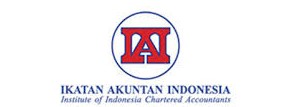Pengaruh Probability Of Audit Dan Gender Terhadap Perilaku Penggelapan Pajak
(Studi Eksperimental pada Mahasiswa Jurusan Akuntansi Fakultas Ekonomi Universitas Negeri Padang)
Abstract
Tax evasion behavior will have an impact on the poor performance of taxation which can affect the government's ability to provide public services. It is important to identify the causes of tax evasion behavior in order to adopt a policy and reduce the negative effects of this phenomenon. Broadly speaking, there are two approaches to explain the factors that influence taxpayer behavior on compliance and tax evasion, namely the economic approach (external factors) and the socio-psychological approach (internal factors). This study used a quasi-experimental design with a 2x2 mixed factor design to test the effect of probability of audit (external factors) and gender (internal factors) on tax evasion behavior. The hypothesis in this study was tested using repeated measures ANOVA. The results of this study indicate that subjects in a low probability of audit condition tend to commit tax evasion. The results of this study also found that there was a gender influence on tax evasion behavior, where men were more likely to commit tax evasion than women. Furthermore, the results of this study found that there was an influence of the interaction between probability of audit and gender on tax evasion. This study contributes to the accounting and taxation literature, especially in the use of experimental methods which are still small in tax research







.png)
.png)
